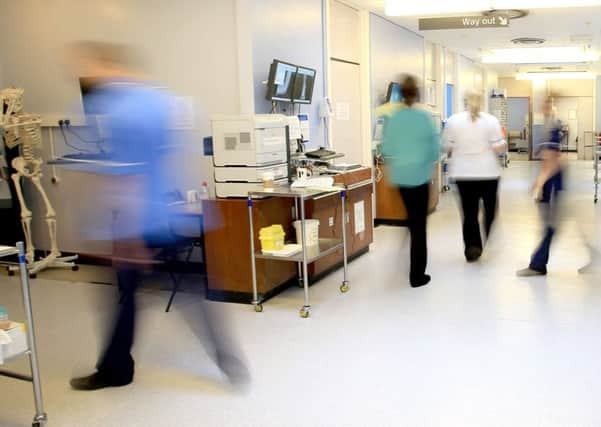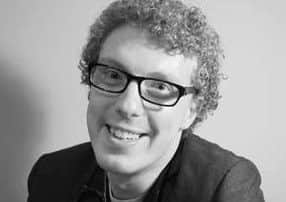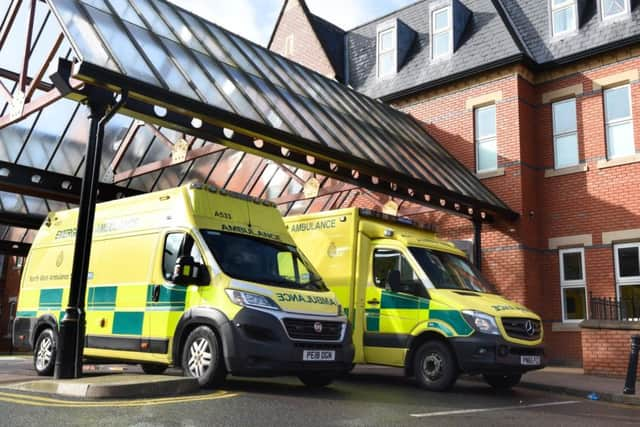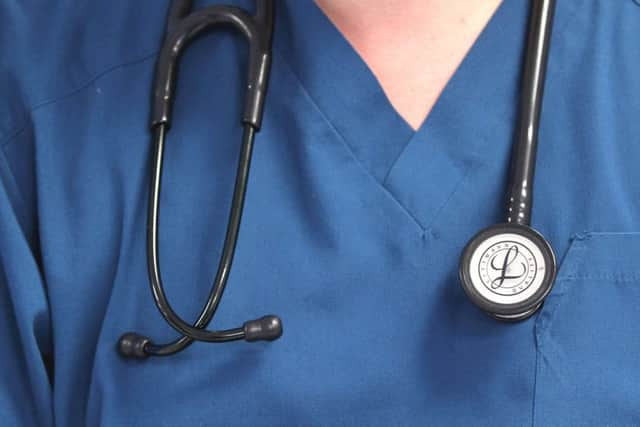Junior doctor exhausted on duty lifts lid on NHS staffing crisis in Yorkshire ahead of general election – David Smith


But while there’s been plenty of talk about pumping more money into our health service, we’ve heard very little in the way of practical solutions to tackle issues of retention, recruitment and levels of burnout plaguing NHS staff.
Advertisement
Hide AdAdvertisement
Hide AdStaff burnout is the new norm, and my GP trainee colleagues in Yorkshire are also feeling the pressure.


Even at the very start of their careers, trainees are exhausted with unrealistic workloads – and it’s not rocket science to guess how they feel about working under the same conditions for another 30 years, maybe more.
Of course, most of my colleagues still want to help patients – we’re doctors, that’s what we trained to do – but this way of working is unsustainable, and many are struggling with the day-to-day grind of working in the NHS.
Advertisement
Hide AdAdvertisement
Hide Ad

As a result, we are seeing more and more healthcare professionals now choosing paths outside of NHS clinical work.
Stories of colleagues spending half of their working week teaching at the local university, working for local charities, or being involved in health promotion work, for example, are now commonplace.
These are all worthwhile and valuable ways of supporting our patients in Yorkshire, but at a time when we desperately need more GPs, we need ways to draw these doctors back into more clinical practice.
What’s causing this problem?


Why don’t doctors want to train?
Advertisement
Hide AdAdvertisement
Hide AdAnd when they qualify, why are they choosing to work part-time?
The GMC has produced new guidance (Caring for doctors, Caring for patients) on how the NHS can address issues with poor morale and working environments for doctors.
Something as simple as changing the food environment for doctors could make a big difference.
Among the recommendations is advice for the NHS to ensure doctors have access to nutritious meals – in other words, not forcing doctors to rely on a packet of crisps and a chocolate bar from a vending machine to get them through a busy shift.
Advertisement
Hide AdAdvertisement
Hide AdImagine the energy expended on giving a patient life-saving CPR, jumping up and down on a patient’s chest in a last-ditch attempt to save their life. Now imagine doing that on an empty stomach.
No wonder doctors regularly go home too exhausted to connect with loved ones or to engage with exercise and sports, which have been shown to lower stress and help fight low morale.
The guidance also calls on the NHS to ensure all doctors have suitable places to rest when they’re not rushing around the wards – something that’s already being called for in the BMA’s Fatigue and Facilities charter.
NHS hospitals across Yorkshire have been given a cash injection to make sure these facilities are in place, but some hospitals have yet to deliver these vital resources.
Advertisement
Hide AdAdvertisement
Hide AdIt’s simple – a doctor who spends their 12-hour night shift constantly on their feet is not going to be able to provide high-quality patient care.
Doctors are understandably worried about making errors that could harm patients.
But prescribing drugs at 3am with one eye open, desperately hoping that that last cup of coffee has taken enough of the edge off your tiredness for you to be safe, is no way to provide care.
Rest facilities are essential for doctors. The NHS is also struggling because the ever-increasing workload is not being balanced out by an investment in the workforce
Advertisement
Hide AdAdvertisement
Hide AdHard-working doctors committed to providing the best possible care for the people of Yorkshire can’t do so.
Night shifts are being worked where the only way a doctor can get 15 minutes of sleep is by pushing chairs together to make a bed.
This is no way to run a modern-day health service. It makes sense that we should be caring for those who are caring for the patients but unfortunately that is not the case.
These are stories we regularly hear from doctors in this region, so it’s not hard to see why many choose to work less than full-time or, in some cases, choose to quit the NHS completely.
Advertisement
Hide AdAdvertisement
Hide AdOur health service is running on empty, with overstretched staff and overstretched resources.
The election is an important opportunity to take stock of how bad it has become and political parties need take note and make these important improvements before it’s too late.
Only then will we be able to deliver an NHS that’s fit for another 70 years and, most importantly, give patients in Yorkshire, and across the rest of the country, the care they need and deserve.
David Smith is a junior doctor in Leeds and member of the BMA Yorkshire regional council.